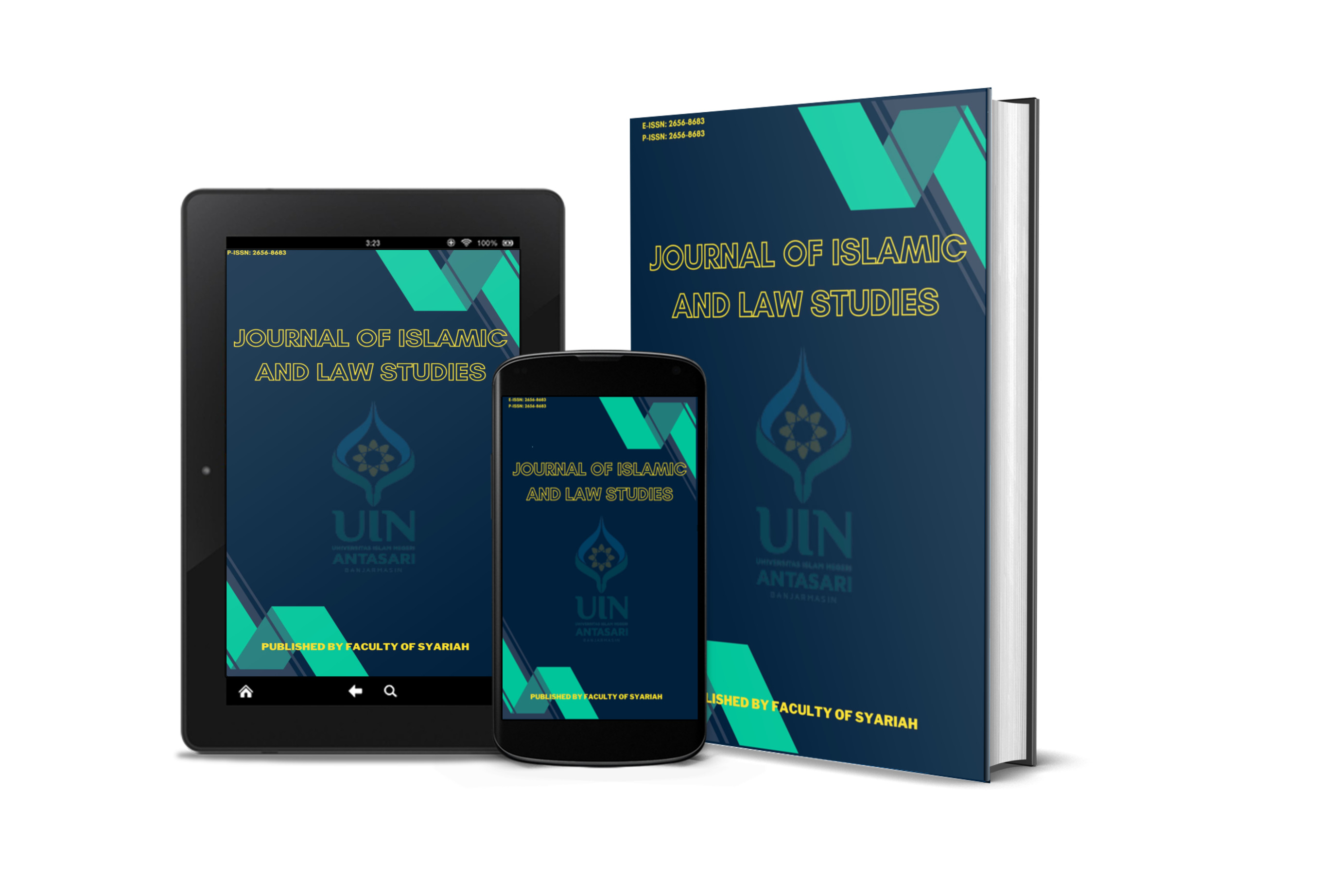Riba Menurut Pemikiran Al-Gazāli, Ar-Razi, Ad-Dahlawi, Al-Maududi
DOI:
https://doi.org/10.18592/jils.v6i2.8230Abstract
Abstract: Talking about the meaning of usury, there are several thoughts according to Al Gazali, Ar Razi, Ad Dahlawi, and Al Maududi. Al-Gazāli argues that usury does not address the issue of interest on money loans. He only said that fixing interest on borrowed money means diverting it from its main function, namely as a medium of exchange and as a measure of value. Meanwhile, according to Ar Razi, there are several things that are prohibited in usury. First, because usury means taking the borrower's property unfairly. Second, Allah forbids usury so that people are not lazy to work. Third, because usury will eliminate the goodness contained in borrowing money. Fourth, in general those who lend money (muqriḍ) come from the rich, while those who borrow money (mustaqriḍ) come from the poor. Fifth, the prohibition of usury has been clearly established in the Qur'an and Hadith. According to Ad Dahlawi, transactions that contain elements of usury do not have a spirit of cooperation at all, therefore these transactions are contrary to humanity and detrimental to civilization. Then according to Al Maududi, the problem of usury is clear and practical, capital does not have the right to collect fixed interest, even if the borrower wins or loses. Abstrak: Berbicara mengenai makna riba, ada beberapa pemikiran menurut Al Gazali, Ar Razi, Ad Dahlawi, dan Al Maududi. Al-Gazāli berpendapat bahwa riba tidak membahas masalah bunga pinjaman uang. Ia hanya mengatakan bahwa penetapan bunga terhadap pinjaman uang berarti membelokkannya dari fungsi utamanya, yaitu sebagai alat tukar dan sebagai pengukur nilai. Sedangkan menurut Ar Razi, ada beberapa hal yang dilarang dalam riba, yang Pertama, karena riba berarti mengambil harta si peminjam secara tidak adil. Kedua, Allah mengharamkan riba agar manusia tidak malas bekerja. Ketiga, karena riba akan menghilangkan kebaikan yang terkandung dalam peminjaman uang. Keempat, pada umumnya pihak yang meminjamkan uang (muqriḍ) berasal dari golongan orang kaya, sedangkan pihak yang meminjam uang (mustaqriḍ) berasal dari kalangan orang miskin. Kelima, keharaman riba telah ditetapkan dengan jelas di dalam Alquran dan Hadis. Menurut Ad Dahlawi, transaksi yang mengandung unsur riba, sama sekali tidak memiliki semangat kerjasama, karenanya transaksi tersebut bertentangan dengan kemanusiaan dan merugikan peradaban. Kemudian menurut Al Maududi, masalah riba sudah jelas dan praktis, modal tidak punya hak untuk memungut bunga yang tetap, meskipun peminjam untung atau rugi.References
Arahman, Rudi, dan Siti Lamusiah. “Transaksi yang Mengandung Unsur Riba, Maysir, dan Gharar dalam Kajian Tindak Tutur.” Jurnal Ilmiah Telaah 5, no. 2 (2020): 28–35.
Buhari, A. Taufiq. “Bank Dan Riba: Implikasinya Dalam Ekonomi Islam.” Al-Insyiroh: Jurnal Studi Keislaman 6, no. 1 (2020): 127–36.
Hisan, Moh Syifaul. “Riba dan Bunga dalam Kontrak Syariah.” Syariati: Jurnal Studi Al-Qur’an dan Hukum 5, no. 02 (2019): 255–70.
Isfandiar, Ali Amin. “Tinjauan Fiqh Muamalat dan Hukum Nasional tentang Wakaf di Indonesia.” La_Riba 2, no. 1 (2008): 51–73.
Istiqomah, Lailatul. “Konsep Riba Dalam Al-Qur’an Dan Implikasinya Bagi Perekonomian.” An-Nisbah: Jurnal Perbankan Syariah 1, no. 1 (2020): 73–88.
Jannah, Ulvah Kholidatul dan others. “Penafsiran Ayat-ayat Riba Menurut Wahbah Al-Zuhaili Dalam Kitab Al-Tafsir Al-Munir fi Al-Aqidah wa Al-Syari’ah wa Al-Manhaj.” UIN SUNAN KALIJAGA YOGYAKARTA, 2015. http://digilib.uin-suka.ac.id/id/eprint/19514.
Kementerian Agama. “Riba dalam Perspektif Agama dan Sejarah,” 11 Agustus 2015. https://cilacap.kemenag.go.id/profil/riba-dalam-perspektif-agama-dan-sejarah/.
Downloads
Published
Issue
Section
License
Copyright (c) 2023 Abdul Gafur, Ansharullah Ansharullah, Fahruddin Fahruddin

This work is licensed under a Creative Commons Attribution-NonCommercial 4.0 International License.
Authors who publish with this journal agree to the following terms:
- Authors retain copyright and grant the journal right of first publication with the work simultaneously licensed under a Creative Commons Attribution License that allows others to share the work with an acknowledgement of the work's authorship and initial publication in this journal.
- Authors are able to enter into separate, additional contractual arrangements for the non-exclusive distribution of the journal's published version of the work (e.g., post it to an institutional repository or publish it in a book), with an acknowledgement of its initial publication in this journal.
- Authors are permitted and encouraged to post their work online (e.g., in institutional repositories or on their website) prior to and during the submission process, as it can lead to productive exchanges, as well as earlier and greater citation of published work.




